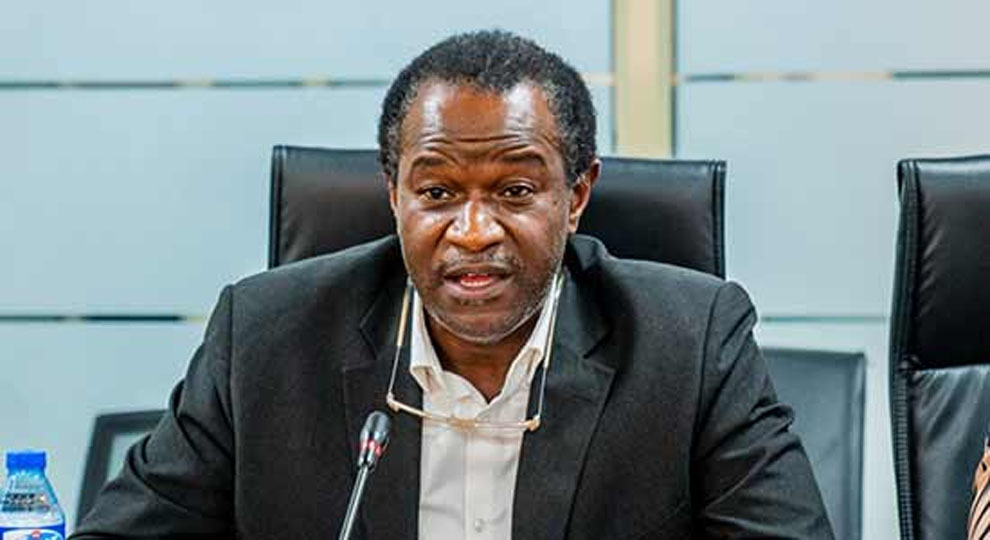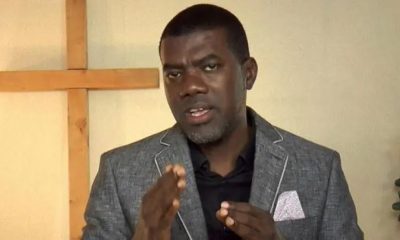Education
ASUU strike: ‘Additional N560bn needed to pay varsity teachers’

Additional N560 billion may be needed by the Federal Government to meet university teachers’ demand for increased annual pay, a top government source has said.
The government is said to spend N372 billion annually on university education alone, including lecturers’ salaries.
Based on talks with the Academic Staff Union of Universities (ASUU), a professor could earn, at least, N2 million monthly.
The Nation reported on Wednesday that the government offered about N1 million monthly salary for a professor, which is a 100 per cent rise.
President Muhammadu Buhari on Tuesday moved to break the ice by personally meeting with the leadership of ASUU, the Senior Staff Association of Nigerian University (SSANU), the National Association of Applied Academic Technologists, NAAT and the National Association of Non-Academics of Educational Institutions Staff Union (NASU)
At the end of the meeting, which was attended by representatives of relevant government ministries and agencies, Buhari directed Education Minister Adamu Adamu to end the strike within two weeks.
The government had at the parley cited dwindling oil revenue as a major hindrance to its inability to meet demands by ASUU, SSANU, NAAT and NASU.
Investigation by The Nation revealed yesterday that based on Buhari’s directive of Buhari, Finance and National Planning Minister Zainab Ahmed, Adamu, the Budget Office and National Wages and Salaries Commission and other agencies have been working on the modalities to meet the unions’ demands without much shock on the economy.
READ ALSO:
- INEC battles 334 pre-election cases, to publish gov candidates’ particulars today
- Joe Biden Tests Positive for COVID-19, Shows Mild Symptoms
- 2023: Court okays suit seeking Tinubu’s trial over alleged perjury
A source said while the government acceded to agitations for a pay rise and release of revitalisation funds to universities, it was also weighing other options.
One of the options, according to him, is to lay the cards on the table for the unions to appreciate and bear with the government.
The source said: “Presently, the government is spending N372 billion annually on university education alone, including lecturers’ salaries. The government also spends billions on polytechnics and colleges of education.
“If ASUU insists on N2 million per month for a professor, the Federal Government will have to cough out an additional N560 billion to be able to meet the expectations of ASUU.
“There is no way the economy can accommodate such an increase. The government and the lecturers have to sit down to face the reality and design a middle course approach to end the strike.”
On revitalisation funds, a source said the Buhari administration has been paying them “in a gradual manner.”
His words: “The agreement ASUU reached with the government of ex-President Goodluck Jonathan was in respect of N1.3trillion Revitalisation Funds. But in line with the economic situation, the Buhari administration reached understanding to release the first tranche of N220 billion. We have paid up to 70 per cent since 2016.
“From March to August last year, we paid about N92.7billion to varsities apart from a consequential adjustment of minimum wage in universities which resulted in 10 per cent pay rise from 2019.
“The differential from the adjustment was paid to university teachers in May this year despite the fact that they are on strike. The universities got an additional N27 billion.
“The polytechnics and Colleges of Education got N4.5 billion and N5.5billion respectively. The Buhari administration has done a lot for the university system but ASUU does not reckon with the best offered its members.
The source also dismissed the comparison of Nigeria’s university pay structure with Rwanda, Ghana, South Africa and Uganda.
He said: “Even at the renegotiation table on Federal /ASUU 2009 Agreement, the National Universities Commission’s recommendation was rejected.
“How many universities are in these African countries? What is the population of their lecturers? We have a peculiar situation with peculiar problems.
“The renegotiation talks were stalled because ASUU does not want to be guided by the technical advisers from the Federal Ministry of Finance and National Planning and Budget Office.
“They drove away experienced directors from the Office of the Head of the Civil Service of the Federation and the National Salaries and Wages Commission.
“Instead, they are hanging on to the report of Prof. Nimi Briggs Renegotiation Committee on the 2009 Agreement. The committee even offered professors additional steps from Step 10 to 13.”
Education
US University opens 2025 scholarships for international students

US University opens 2025 scholarships for international students
Montana Technological University (Montana Tech) has opened applications for its 2025 scholarships, offering international students the opportunity to pursue graduate studies in the USA.
These scholarships, available for both Master’s (MS) and PhD students, provide a tuition waiver and a competitive stipend for living expenses.
Scholarship overview and opportunities
Scholarship Region reports that Montana Technological University is offering funded Graduate Research Assistantships (GRAs) for Fall 2025. These assistantships are available for students applying to the MS and PhD programs, and they provide an opportunity to work alongside faculty on important research projects.
The university is focusing on key research areas such as advanced materials and manufacturing, critical mineral recovery and processing, environmental remediation, and biotechnology. Interested applicants are encouraged to apply soon to contribute to these cutting-edge fields.
Eligibility requirements
To apply for the Montana Tech University Scholarship 2025, candidates must meet several criteria.
- Applicants should have completed a bachelor’s degree from a recognized university.
- They must also meet the admission requirements for the program they wish to apply to and satisfy the English language proficiency requirements set by the university.
- Additionally, applicants must submit their applications for admission by January 1st to be considered for the scholarship.
READ ALSO:
- 200,000 repentant terrorists surrender, drop arms in North East – CDS
- Canadian university offers funded national scholarship program for 2025
- Israeli strikes pound central Beirut, suburbs
Benefits for scholarship winners
Students who are accepted into the MS or PhD programs at Montana Tech and are awarded a Graduate Research Assistantship will receive significant benefits. These include a
- Tuition waiver and a competitive stipend to cover living expenses.
- All applicants to available graduate programs will automatically be considered for the assistantships.
Required documents for application
Details inform that candidates applying for the Montana Technological University Scholarship must prepare several documents as part of the application process. Required documents include the;
- Application form,
- A personal statement,
- A CV, recommendation letters,
- TOEFL or IELTS scores, GRE scores, and official academic transcripts.
These documents as mentioned, are crucial for the admissions review and scholarship consideration.
Step-by-step application process
To apply for the scholarship, candidates are informed to first visit the graduate research fields page on Montana Tech’s Graduate School website. From there, they can apply for openings in the available research areas and complete the application form.
All required documents must be uploaded as part of the application. For more details and guidance, prospective students can contact the Montana Tech Graduate School at [email protected], where they will be connected with a faculty member leading a funded project.
US University opens 2025 scholarships for international students
Education
Canadian university offers funded national scholarship program for 2025

Canadian university offers funded national scholarship program for 2025
Western University has announced that applications are now open for the National Scholarship Program for the 2025-2026 academic year.
The opportunity offers funding to outstanding students with a proven track record of academic excellence, leadership, and community involvement.
According to Western University, the deadline for applications is February 14th, 2025.
Details of the program and eligibility
The National Scholarship Program is aimed at Canadian citizens and permanent residents, as well as international students meeting specific criteria. International students who are not Canadian citizens or permanent residents are eligible for the International President’s Entrance Scholarship.
Details inform that applicants must have an overall academic average of 90% or higher from their Grade 12 courses (or equivalent) and must apply for full-time studies at Western University’s main campus. Students must also be nominated by their high school.
Scholarship opportunities and amounts
The program offers various scholarship opportunities based on academic achievement and extracurricular involvement.
- The Neen Hodgins National Entrance Scholarship awards $80,000 over four years, while,
- President’s Entrance Scholarships range from $50,000 to $70,000, depending on the amount of funding available.
- For black students, the James Jenkins President’s Entrance Scholarship offers $50,000, and the Beryl Ivey Continuing Entrance Scholarship provides $92,000 over four years.
READ ALSO:
- Israeli strikes pound central Beirut, suburbs
- Robbers kill two members in shoot-out with Delta police
- French football star, Paul Pogba’s blackmail trial begin in Paris
International students have access to scholarships such as the Neen Hodgins President’s International Entrance Scholarship, valued at up to $80,000. Other awards include the Faculty Entrance Scholarships, valued at $30,000, and the National Merit Awards, which provide $2,000 for students who are interviewed but not selected for a National Scholarship or a Schulich Leader Scholarship.
Application requirements
Applicants must submit a variety of materials, including a completed online application, a transcript from their school, and a reference letter from a teacher or staff member who is familiar with their academic and extracurricular achievements.
Additionally, applicants are required to write a 1,000-1,250 word essay on an issue of public concern. The essay, along with other supporting documents, must be submitted by the February 14th, 2025, deadline.
Nomination and assessor process
The institution informs that in order to be considered for the National Scholarship Program, students must be nominated by their school. The application includes a “Nomination Request Form,” which is sent to the school administrator once completed.
Students are told to ensure that they follow up with their school to confirm that their nomination and transcript are submitted on time. Additionally, students must request one reference letter from a teacher or staff member who can assess their academic performance and involvement in extracurricular activities.
How to apply
To apply, students need to access the National Scholarship application through the online portal, using their OUAC reference number and date of birth.
- Western University advises that there may be a delay between submitting the admission application and being able to access the scholarship application, with a minimum wait time of five business days.
- Once available, students can complete the application and submit all required documents before the assigned deadline.
For further details on how to apply, visit the Western University National Scholarship application portal.
Canadian university offers funded national scholarship program for 2025
Education
Student loan: More applicants hopeful as NELFUND credits accounts

Student loan: More applicants hopeful as NELFUND credits accounts
More students across several tertiary institutions in Nigeria are optimistic of benefiting from the next batch of disbursements of the Nigerian Education Loan Fund (NELFUND), Weekend Trust gathered.
The NELFUND, established by the Students Loan Act 2023 is managed and administered by the Central Bank of Nigeria (CBN) through the money deposit banks. It aims to facilitate the mobilisation of funds to provide interest-free loans to students of tertiary institutions.
Beneficiaries are expected to begin a repayment process of 10% of their salary to be deducted at source two years after the completion of the National Youth Service Corps (NYSC), while self-employed beneficiaries are required to remit the same of their monthly profit.
The disbursement of funds is made directly to the institutions bank accounts while successful applicants are entitled to a monthly stipend of N20,000 for upkeep if they so wish.
READ ALSO:
- Why Tinubu’s reforms are causing pain – Wale Edun
- Jake Paul, Mike Tyson bag suspension after controversial Texas’ fight
- Gunmen abduct journalist’s three family members in Kogi, demand N50m ransom
Weekend Trust reports that in August, the NELFUND had released data that showed significant regional disparities in the registration, application and disbursement of funds with the South-east recording the lowest figure.
Netizens on X had accused NELFUND of neglecting universities in the South-east but the Fund refuted the claim, saying the management of tertiary institutions in the South-east had failed to respond to verification requests forwarded to them.
North-west leads in disbursement, South-west in institutions
The latest data released by NELFUND on November 7, shows that the South-west has the highest number of beneficiary institutions with 27 currently getting disbursements. This is followed by the North-west which has 18 institutions while the North-east has 16 and the South-south has 15 institutions. The North-central and South-east have 11 institutions each.
On the number of students by zone, the North-west has the highest number of students with 43,378 followed by North-east with 28, 782 and the South-west with 12,539. The North-central has 11,555 beneficiaries while the South-south has 5,837 and South-east has 4,073.
The breakdown of the funding by zones, also shows that the highest of N4,424,024,250 billion was paid to the 18 institutions in the North-west, followed by the16 institutions in the North-east which got N2,544,223,937 billion, then the 27 institutions in the South-west received N1,842,876,713billion. The 11 institutions in the North-central got N1,099,808,700 billion, while the15 in the South-south got N597,250,030 million and the 11 institutions in the South-east received 539,610,320 million.
Student loan: More applicants hopeful as NELFUND credits accounts
DAILY TRUST
-

 metro1 day ago
metro1 day agoBREAKING: Port Harcourt refinery begins operation
-

 Business3 days ago
Business3 days agoJust in: Dangote refinery reduces petrol price for marketers
-

 metro2 days ago
metro2 days ago40-foot container falls on car in Lagos
-

 Politics2 days ago
Politics2 days agoLagos 2027: Seyi Tinubu campaign team releases his life documentary
-

 Education19 hours ago
Education19 hours agoUS University opens 2025 scholarships for international students
-

 International2 days ago
International2 days agoTrump to sack 15,000 transgender officers from U.S. military: Report
-

 Entertainment2 days ago
Entertainment2 days agoPolygamy best form of marriage for Africa – Okey Bakassi
-

 Sports20 hours ago
Sports20 hours agoFrench football star, Paul Pogba’s blackmail trial begin in Paris












